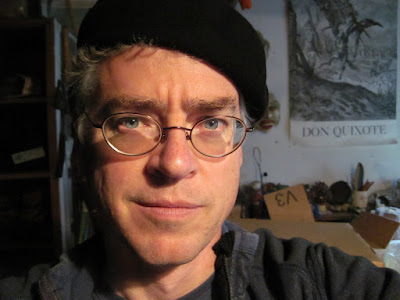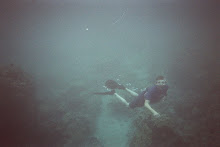I've got Dougie Maclean's "Mo Nighean Donn" playing from the Whitewash CD, and that seems a fitting background as I open up Seamus Heaney's North and share a favorite poem. Heaney is my favorite model of a poet whose symbolism is always grounded, always working concretely and figuratively, gaining strength from that constructive duality. Here, now, I just want to reread a memorable piece, not blather too much about it.
NORTH
I returned to a long strand,
the hammered shod of a bay,
and found only the secular
powers of the Atlantic thundering.
I faced the unmagical
invitations of Iceland,
the pathetic colonies
of Greenland, and suddenly
those fabulous raiders,
those lying in Orkney and Dublin
measured against
their long swords rusting,
those in the solid
belly of stone ships,
those hacked and glinting
in the gravel of thawed streams
were ocean-deafened voices
warning me, lifted again
in violence and epiphany.
The longship's swimming tongue
was buoyant with hindsight--
it said 'Thor's hammer swung
to geography and trade,
thick-witted couplings and revenges,
the hatreds and behindbacks
of the althing, lies and women,
exhaustions nominated peace,
memory incubating the spilled blood.
It said, 'Lie down
in the word-hoard, burrow
the coil and gleam
of your furrowed brain.
Compose in darkness.
Expect aurora borealis
in the long foray
but not cascade of light.
Keep your eye clear
as the bleb of the icicle,
trust the feel of what nubbed treasure
your hands have known.'
--Seamus Heaney
North. Faber and Faber. London & Boston: 1975.
North is my single favorite volume of Heaney's verse, though Death of a Naturalist, Station Island, and Seeing Things all make claims upon me--as does Heaney's translation of Beowulf, though that's a different beast of mixed lineage and joy. His North pulls together my own preoccupations with the North Atlantic, with Celts and Vikings, with history and autobiography, bog people and ambition, with sagas and cauldrons and the cold salt sea.
(Heaney revises "North," this specific poem, slightly in his collected works of 1996: Opened Ground. He substitutes "curve" for "shod" in the second line; I'd been wondering if "hammered shod of a bay" was an Irishism or a metaphor, and I'd even devised an interpretation for "shod" as a noun, just in case. Isn't that what you do, too?)
Read "Exposure" next.



























